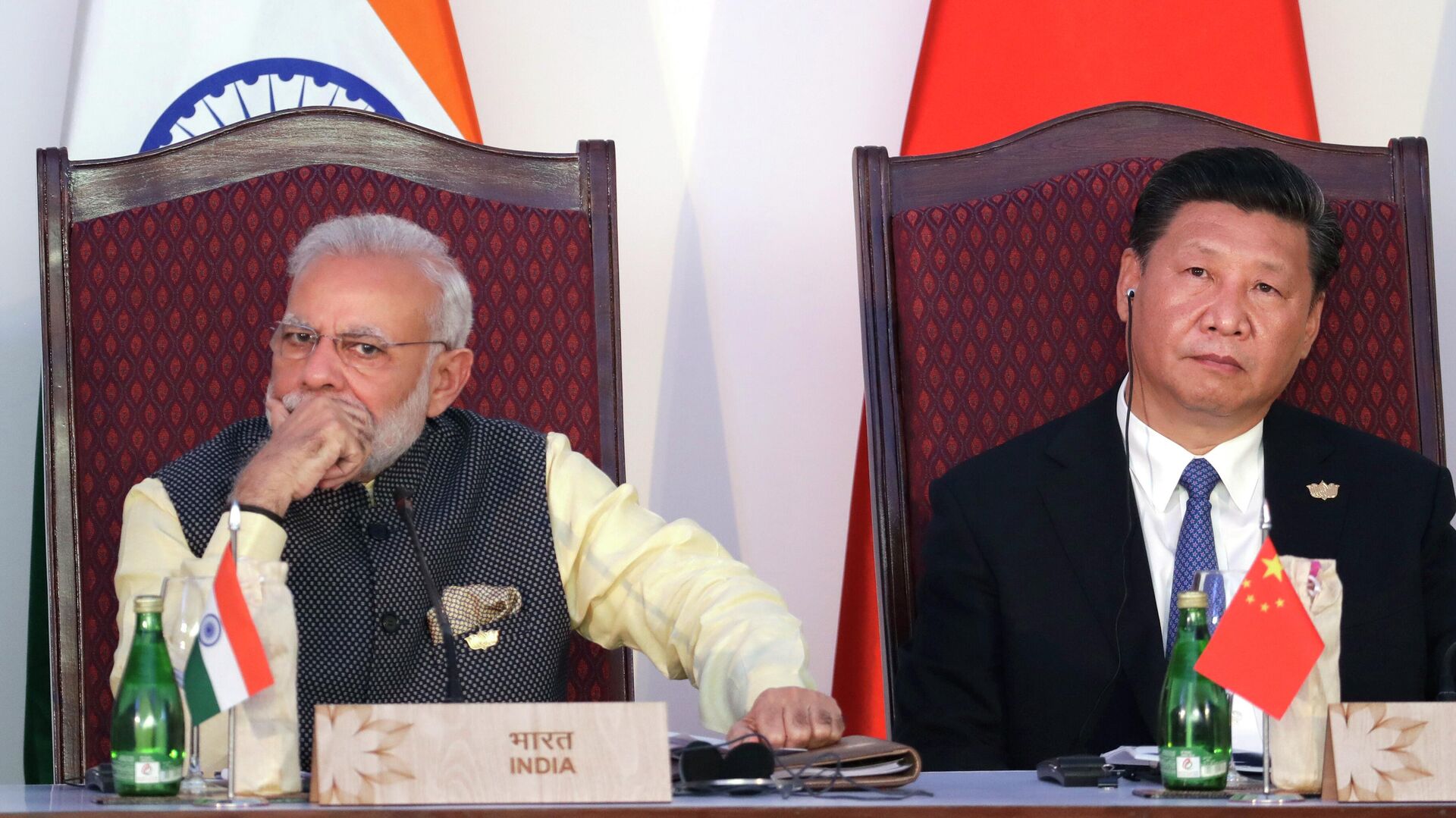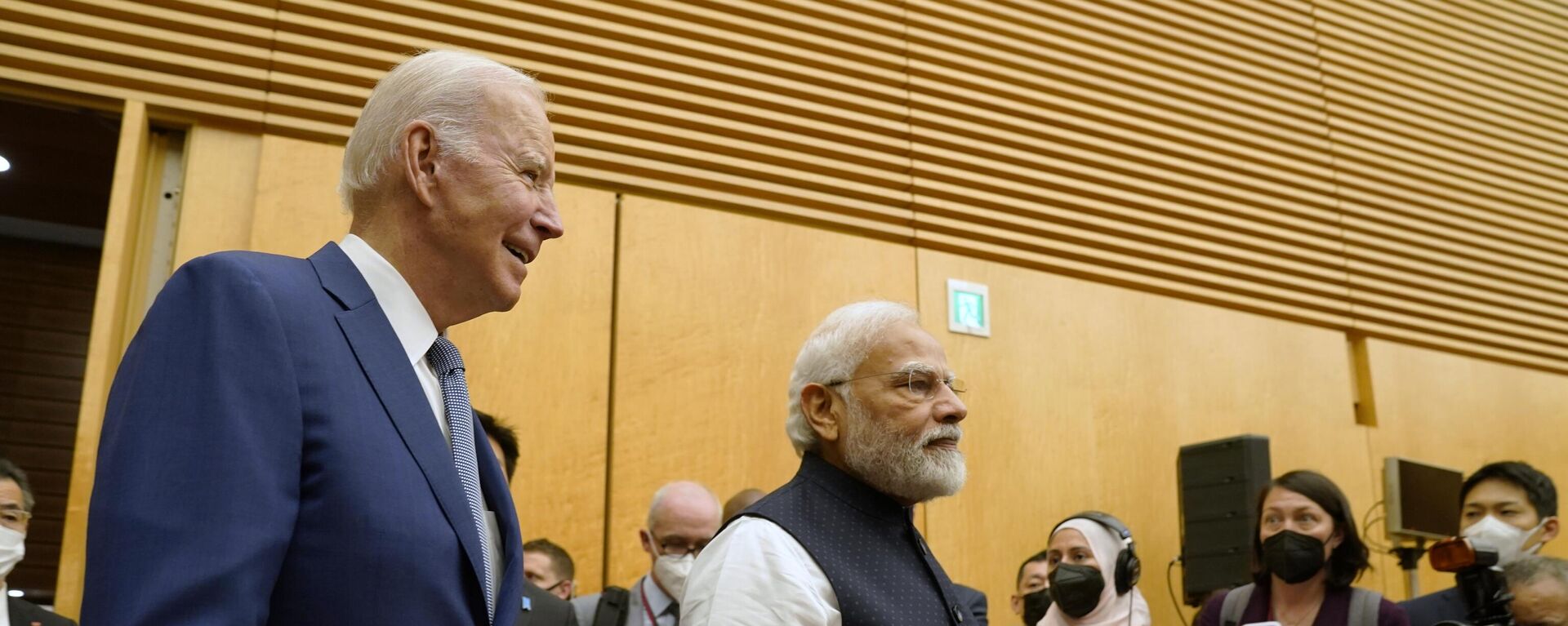Why India Doesn't Want to Be Part of SQUAD
11:15 05.04.2025 (Updated: 15:12 07.04.2025)

© AP Photo / Manish Swarup
Subscribe
The Philippines has intensified efforts to drag India into the SQUAD grouping that also comprises the US, Japan, and Australia. Sputnik India assesses whether India will take the bait or not.
India has no business becoming a member of the SQUAD amid the Philippines' push to expand the strategic military alliance that seeks to challenge China in the Indo-Pacific, experts have said.
Notably, the Philippines has been courting both India and South Korea to join as new members of the multilateral SQUAD.
India's cautious approach to the SQUAD stems from multiple reasons, reckons Dr. Raj Kumar Sharma, a Senior Fellow at the New Delhi-based strategic affairs think tank NatStrat and a Visiting Fellow at the Department of Diplomacy and India Studies Centre, National Chengchi University, Taiwan.
One is the unpredictability at the global level unleashed by US President Donald Trump's policies. He has been targeting even friendly countries with tariffs. At the same time, there is no certainty that he will stick to his military alliance commitments with America's allies, the international relations expert highlighted.
The second factor is that SQUAD is outrightly a military alliance against China and its agenda and scope are narrow. In comparison, QUAD is not a military alliance and has a bigger and more comprehensive scope, as even non-traditional security issues are involved, he added.
"Third, India does not have a military alliance with the US, unlike the other SQUAD countries. This means India cannot bank upon anyone but itself in case there is any military conflict with China. Lastly, India is the only country compared to SQUAD members that shares a disputed land border with China. Hence, India will not want to unnecessarily provoke China at a time when not only the US is unpredictable but New Delhi is also attempting to improve ties with Beijing," Sharma told Sputnik India.
Instead of joining military alliances against China, India's policy to deal with China is multi-dimensional. Economic engagement, along with strengthening its military capabilities, suits India. While India will maintain its bilateral military cooperation with the Philippines, he emphasised that the latter's efforts to include India as a member of the SQUAD are unlikely to yield any results.
From a point of function, India is already part of the QUAD with the US, Japan, and Australia, and for that reason, India sees the SQUAD as overlapping, as a repetition of efforts, suggests Sidhant Hira, a member of Team Grey Zone and Influence at the Irregular Warfare Institute in Washington.
The QUAD does not solely have security dimensions but also includes health, climate change, critical technologies, space, disaster response, cybersecurity, supply-chain resilience and international law, the geopolitical commentator pointed out.
On the other hand, the SQUAD is purely a military alliance that aims to counter the Chinese military with deterrence and force, he underscored.
"From a military standpoint, India neither has the interest nor the naval capacity to deploy assets frequently and with sufficient credibility to deter China in the South China Sea. India and China are already embroiled in one conflict at the Line of Actual Control; there is no need for India to involve itself through the SQUAD in this manner in East Asia," Hira noted.
Historically, India has never believed in the concept of an alliance, whether military or otherwise. Given the fact that India sees the SQUAD as a military alliance that conducts joint exercises in the South China Sea, there are two good reasons India has not joined this military alliance, the researcher remarked.
The first reason is that India does not want to adopt an aggressive stance against China beyond its neighbourhood and supply chains, he stated.
The second reason is from China’s perspective, where India is seen as too aggressive. While India seeks to counter China, it avoids actions that could escalate tensions, the observer noted.
"It is also bad timing or bad optics for India were it to join the SQUAD as New Delhi and Beijing are attempting to reset the relationship from October 2024 onwards, when Foreign Secretary Vikram Misri made the public announcement. China could potentially link India's entry into the SQUAD with New Delhi's desire to potentially set the stage for Indian military support and involvement to and for Taiwan," Hira explained.
India has an indirect strategic relationship with the Philippines that is of great importance for New Delhi, particularly in the context of its defence exports, mentioned Commodore (Retd) Seshadri Vasan.
One must not forget that the Philippines is the first foreign buyer of the widely acclaimed BrahMos missile. Also, India is looking at other avenues of military cooperation with the Southeast Asian state. But all of this falls strictly under the purview of bilateral ties, the Indian Navy veteran stressed.
Furthermore, as India and China are trying to look at new equations that will benefit both economically, especially when Trump has unleashed a 'tariff war' on several nations all over the world, India does not have any reason to join the SQUAD, he elaborated.
"In fact, being a part of the SQUAD will not be in the long-term interest of India, considering improved ties with China are a must to have tranquility at its northern borders, and that's why, not upsetting the apple cart will be the best thing that New Delhi can do as of now," Vasan concluded.


